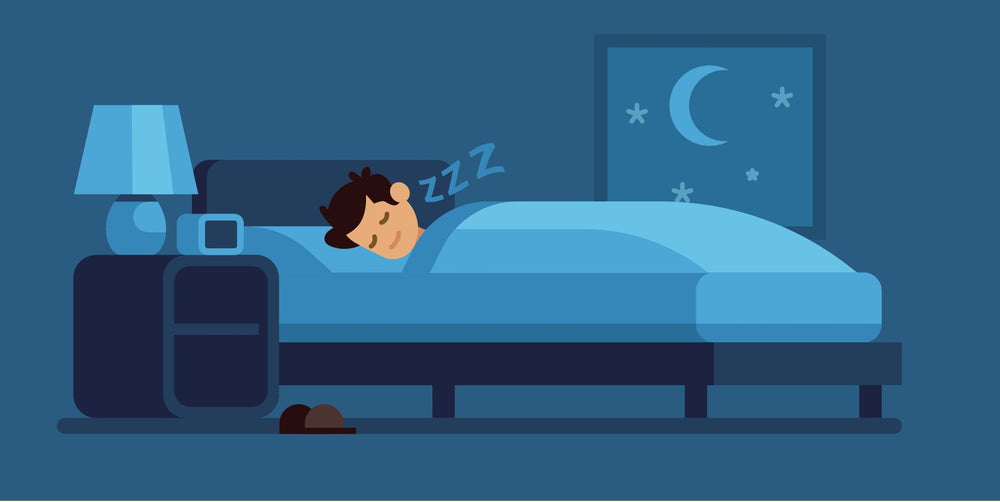As the sun sets and the hustle and bustle of the day begins to fade away, many of us find ourselves tossing and turning in bed, thoughts racing through our minds like a wild river. It’s in these moments of restlessness that the practice of mindful sleeping can truly shine, offering a peaceful and rejuvenating way to end the day. If you’re new to the concept of mindful sleeping and eager to embark on a journey towards better rest, look no further. In this beginner’s guide, we’ll explore the art of bringing mindfulness to the realm of sleep, allowing you to drift off into dreamland with grace and ease. So grab your favorite pillow, dim the lights, and prepare to transform the way you approach your nightly slumber.

Steps to Creating a Relaxing Bedtime Routine
Creating a relaxing bedtime routine can help you ease into a restful night’s sleep and wake up feeling refreshed and energized.
One important step in practicing mindful sleeping is to limit screen time before bed. The blue light emitted by electronic devices can disrupt your circadian rhythm and make it harder for you to fall asleep. Instead, try reading a book, listening to calming music, or practicing gentle yoga to relax your mind and body.
Creating a calming environment in your bedroom is also crucial for a restful night’s sleep. Consider using dim lighting, investing in a comfortable mattress and pillows, and keeping your room cool and well-ventilated. You can also incorporate soothing scents like lavender or chamomile to promote relaxation.
Establishing a bedtime routine that signals to your body it’s time to wind down can help you transition into a peaceful slumber. Try to go to bed and wake up at the same time every day, practice deep breathing exercises, or indulge in a warm bath before bed to relax your muscles and clear your mind. Remember, a consistent routine is key to achieving a restful night’s sleep.
Exploring Mindfulness Techniques for Better Sleep
Are you struggling to get a good night’s sleep? Incorporating mindfulness techniques into your bedtime routine could be the key to improving the quality of your rest. Mindfulness involves being fully present in the moment without judgment, which can help quiet the mind and reduce stress levels, making it easier to fall asleep and stay asleep throughout the night.
One effective mindfulness technique for better sleep is deep breathing exercises. Before bed, try taking slow, deep breaths in through your nose, holding for a few seconds, and then exhaling slowly through your mouth. This can help calm your nervous system and relax your body, making it easier to drift off to sleep.
Another helpful practice is body scan meditation, where you mentally scan your body from head to toe, noticing any areas of tension and consciously releasing them. This can help promote physical relaxation and reduce muscle tension, allowing you to settle into a more restful sleep. Additionally, incorporating gentle yoga stretches or progressive muscle relaxation techniques before bed can further enhance your mindfulness practice and promote better sleep.
Tips for Quieting the Mind Before Bedtime
Creating a peaceful bedtime routine can greatly improve the quality of your sleep and help quiet your mind before drifting off to dreamland. Here are some beginner-friendly tips to help you cultivate a mindful sleeping practice:
- Practice deep breathing exercises to calm the mind and body. Inhale deeply through your nose, hold for a few seconds, and then exhale slowly through your mouth.
- Engage in gentle stretching or a short yoga session to release tension in your muscles and promote relaxation.
- Avoid screen time at least an hour before bed, as the blue light emitted from electronic devices can disrupt your natural sleep-wake cycle.
Additionally, try establishing a soothing bedtime routine that signals to your body that it’s time to wind down. This could include reading a book, taking a warm bath, or sipping on a cup of calming herbal tea. Remember, consistency is key when it comes to training your mind to relax and prepare for a restful night’s sleep.
Utilizing Breathing Exercises for a Peaceful Night’s Sleep
Are you tired of tossing and turning at night, unable to quiet your mind and drift off into a peaceful sleep? One effective way to combat insomnia and promote relaxation is by incorporating breathing exercises into your bedtime routine. By practicing mindful breathing techniques, you can help calm your mind, reduce stress, and prepare your body for a restful night’s sleep.
Here are a few simple breathing exercises to try before bedtime:
- 4-7-8 Breathing: Inhale slowly through your nose for a count of 4, hold your breath for a count of 7, then exhale gently through your mouth for a count of 8. Repeat this cycle several times to help relax your body and mind.
- Belly Breathing: Place one hand on your chest and the other on your belly. Take deep breaths, focusing on expanding your diaphragm and feeling your belly rise and fall with each breath. This technique can help release tension and promote relaxation.
By incorporating these simple breathing exercises into your nightly routine, you can create a sense of calm and tranquility that will help you drift off into a peaceful night’s sleep. So, take a few minutes before bed to practice mindful breathing and prepare your body and mind for a restful night ahead.
As you embark on your journey towards mindful sleeping, remember that it is a practice that requires patience and consistency. By incorporating simple mindfulness techniques into your bedtime routine, you can improve your sleep quality and overall well-being. So, close your eyes, take a deep breath, and embrace the peace and tranquility that comes with a restful night’s sleep. Sweet dreams, and may you awaken feeling refreshed and rejuvenated. Good night!
